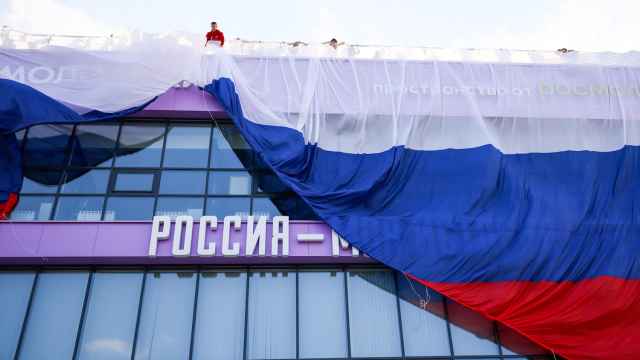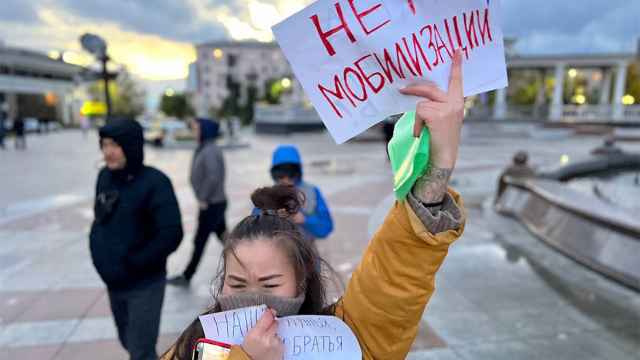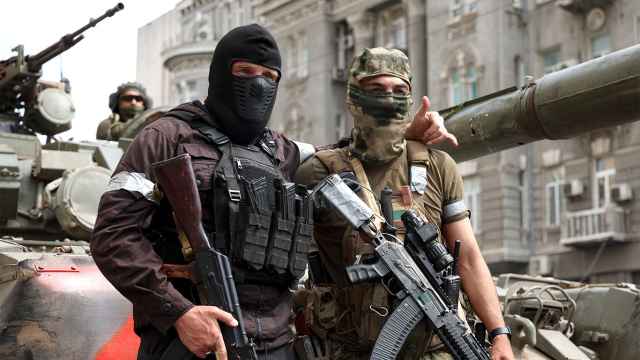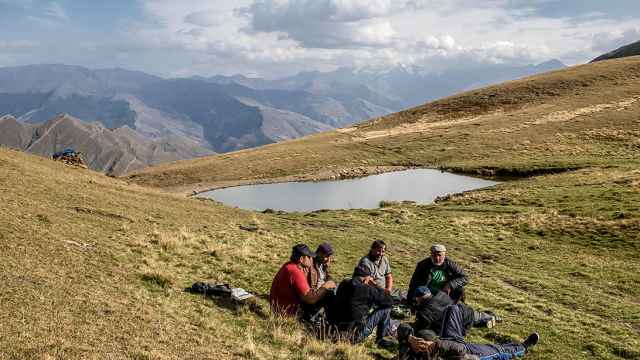In a speech at the Bled Strategic Forum in Slovenia this week, Yulia Navalnaya, the widow of Russian opposition politician Alexei Navalny, discussed the need for European countries to develop a cohesive strategy regarding Russia.
While her speech largely tread familiar ground, reaffirming her calls to support Russian civil society and its quest for a democratic Russia, one part in particular sparked significant debate on Russian-speaking social media:
“Finally, there are those who advocate for the urgent ‘decolonization’ of Russia, arguing to split our vast country into several smaller, safer states. However, these ‘decolonizers’ can’t explain why people with shared backgrounds and culture should be artificially divided. Nor do they say how this process should even take place.”
After Team Navalny translated Navalnaya’s speech into Russian and posted it on social media, it caught the attention of some ethnic and decolonial activists, who found it rather insulting. Ironically, many of these people — academics, writers, bloggers, artists, independent journalists and simply anyone who cares about the issue — have spent much of the past three years explaining through their diverse range of work what decolonization means, why the right of self-determination of peoples matters, and how and why decolonization is important for the future.
This short passage in Navalnaya’s speech once again proves a point that has been made many times already: Navalny’s team, one of the most powerful and famous organizations opposing Putin, does not want to listen to the Indigenous peoples of Russia, whose perspective confronts them with an inconvenient and unpleasant truth.
There are several reasons why this message was insulting to Indigenous communities. Kremlin propaganda frequently deploys the trope that “decolonizers are separatists who want to tear our country apart and wreak havoc.” Putin’s regime kills and kidnaps activists from the North Caucasus, prosecutes and jails Indigenous spiritual leaders and labels ethnic cultural organizations as “extremists,” painting all of these actions as a struggle against “evil and dangerous separatists.” Navalnaya’s speech aligns with that fear-mongering very well.
Team Navalny managed to make Navalnaya’s statement even more scandalous when they translated it into Russian. Whether it was a genuine mistake or not, the translated phrase published on their official social media account reads not as “There are those who advocate for the urgent decolonization of Russia,” but as “We will find those who speak about the necessity to urgently decolonize Russia.”
To many, this sounded like a threat, especially in light of the Russian state’s repressions. Some even pointed out the resemblance of Navalnaya's translated comments with Putin’s infamous vow to “pursue the terrorists everywhere [and] whack them in the toilets” in 1999 amid Moscow's brutal bombings of Grozny in Chechnya.
At the time this article was written, there were thousands of comments under the Instagram post, many of which expressed disappointment and outrage: “Yulia, the shared background that we Caucasians have with you is the fact that you are historically our occupier”; “We natives of the national republics didn’t ask you anything, Yulia. Do whatever you want in Muscovy. We will decide what we want for ourselves on our lands.”
It's worth noting that following Alexei Navalny's murder, Navalnaya represents not just herself but the broader political entity of Team Navalny and the Anti-Corruption Foundation. Her public speeches are likely the result of collective deliberation, and are not necessarily her personal opinion. This raises the question: what is the purpose of the anti-decolonization message, and who is its target audience?
By speaking critically of decolonial movements, Navalnaya is likely appealing to certain segments of Western liberal politicians and audiences who hold right-leaning views and generally support anti-Indigenous sentiments. That sentiment in Russia rhymes very well with those held by right-leaning Europeans, including anti-immigration movements, white supremacy and the subtler but still racist idea of the contradiction between the “enlightened West” and the “barbaric and exotic East.”
The Russian translation of Navalnaya’s speech likely resonates with members of the Russian liberal opposition from Moscow and St. Petersburg, usually from the middle class and the “intelligentsia.” These people, who believe in a “European future” for Russia, tend to ignore the centuries of exploitation and extractivism of Russia’s regions and ethnic republics that made Moscow and central Russia prosperous.
In addition to the Moscow anti-Putin liberals, the Russian “liberal” oligarchy and elites are another possible target for Navalnaya’s message. Russian oligarchs fear the idea that “decolonizers” can “take power,” because this would undermine the extractivist structures that sustain their wealth.
It appears that Team Navalny is more interested in preserving the status quo than in engaging in a meaningful dialogue with the millions of people who live in Russia’s regions and ethnic republics. It is hard to interpret Navalnaya's speech any other way.
From our point of view as Indigenous activists, it is strange at the very least to insist on the “Europeanization” of Russia when half of it lies in the North Caucasus and Asia and is populated by Caucasian and Asian peoples. Our unique and diverse cultures, as well as our histories of colonization and exploitation by Moscow, cannot be ignored by anyone who speaks about changes for the better.
Despite the propaganda narrative, there is no organized political structure of “decolonizers with an agenda.” There is also no direct link between the ideas of decolonization and separatism. For instance, there are Indigenous activists on the political left who would argue they do not support the concept of the nation-state as the ideal model for the future.
But most importantly, there are a lot of people who are simply very tired of the war and the exploitation Moscow has been carrying out against them and their land for centuries, and these people want to discuss an alternative way forward.
For now, all we are seeing is proof that there is no chance for such dialogue between us and liberals from Moscow. So the Indigenous peoples of Russia will speak with each other, and we will decide what future we want for ourselves.
A Message from The Moscow Times:
Dear readers,
We are facing unprecedented challenges. Russia's Prosecutor General's Office has designated The Moscow Times as an "undesirable" organization, criminalizing our work and putting our staff at risk of prosecution. This follows our earlier unjust labeling as a "foreign agent."
These actions are direct attempts to silence independent journalism in Russia. The authorities claim our work "discredits the decisions of the Russian leadership." We see things differently: we strive to provide accurate, unbiased reporting on Russia.
We, the journalists of The Moscow Times, refuse to be silenced. But to continue our work, we need your help.
Your support, no matter how small, makes a world of difference. If you can, please support us monthly starting from just $2. It's quick to set up, and every contribution makes a significant impact.
By supporting The Moscow Times, you're defending open, independent journalism in the face of repression. Thank you for standing with us.
Remind me later.






